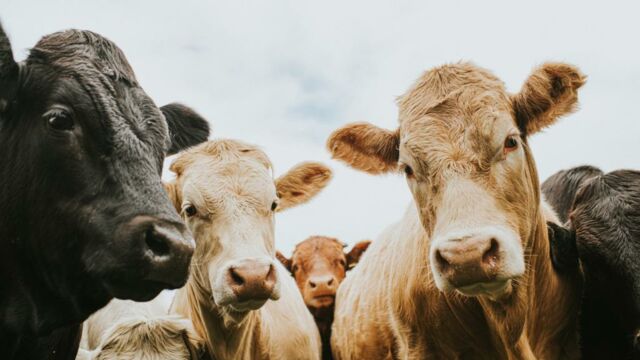We all have the basics down when it comes to reducing our carbon footprints: recycle; buy less plastic; drive less; conserve water. But, there’s one other habitual aspect of our lives that could be having a massive impact on the planet: our diet.
Discover our latest podcast
A major new study has found that meat production makes up almost 60% of food-related greenhouse gas emissions.
How is meat impacting the planet?
The study, published in Nature Food, detailed that processes involved in meat production such as growing feed, using machinery, transportation and spraying fertiliser all add up, with the food industry emitting 17.3bn metric tonnes of greenhouse gases a year, 35% of all global emissions.
Researchers continued to go deeper, revealing exactly what types of food are doing the most damage by creating an emissions profile on 171 crops and 16 animals, drawing data from over 200 countries.
The data gathered found cows, pigs, animals, and animal feed to be responsible for 57% of all food production-related greenhouse gasses. Meanwhile, the cultivation of plant-based foods only accounts for 27% of emissions.
Unsurprisingly, beef is the greatest offender and is responsible for almost a quarter of food-related GHGs. Not only do cows produce methane, but raising such large, grazing animals requires vast amounts of land and feed, resulting in emissions, deforestation and sometimes even desertification. Xiaoming Xu, a University of Illinois researcher and the lead author of the paper explained:
To produce more meat you need to feed the animals more, which then generates more emissions. You need more biomass to feed animals in order to get the same amount of calories. It isn’t very efficient.
The study detailed the striking difference between plant and meat production, revealing that raising just one kilogram of beef produces as much as 70kgs of GHGs, while a single kilo of wheat would emit just 2.5kgs.
Scientists are stressing the importance of dietary choices
With the growing threat of the climate crisis, researchers are stressing that a major revamping of both diets and farming methods is imperative, especially in countries that are lucky enough to have alternative options.
Back in 2016, the BBC reported that if the whole world became vegetarian by 2050, food-related emissions would drop by 60%. But, while global warming and the recent IPCC report has been enough to fuel vegetarianism, flexitarianism and veganism, it’s unrealistic to imagine a world without meat consumption and what we choose to consume is a largely personal choice. Atul Jain, a climate scientist at the University of Illinois and co-author of the paper, reiterated:
A lot of this comes down to personal choice. You can’t just impose your views on others. But if people are concerned about climate change, they should seriously consider changing their dietary habits.















